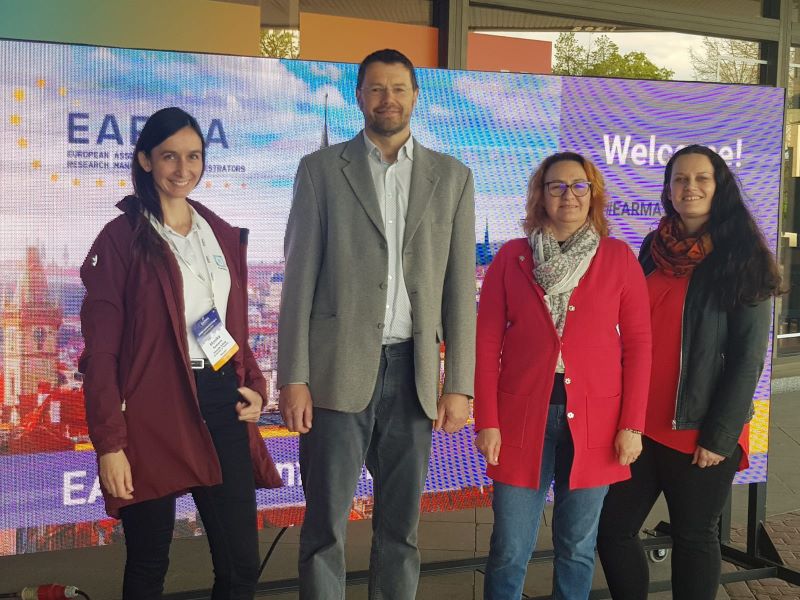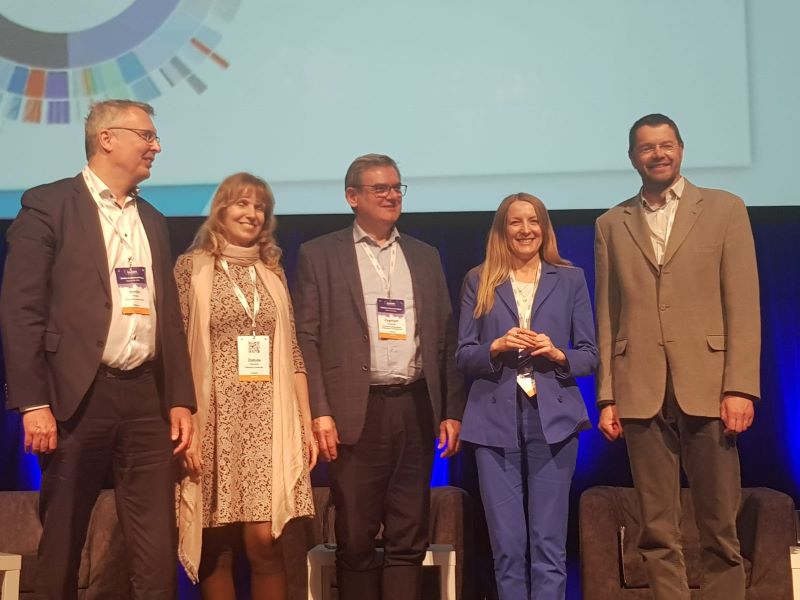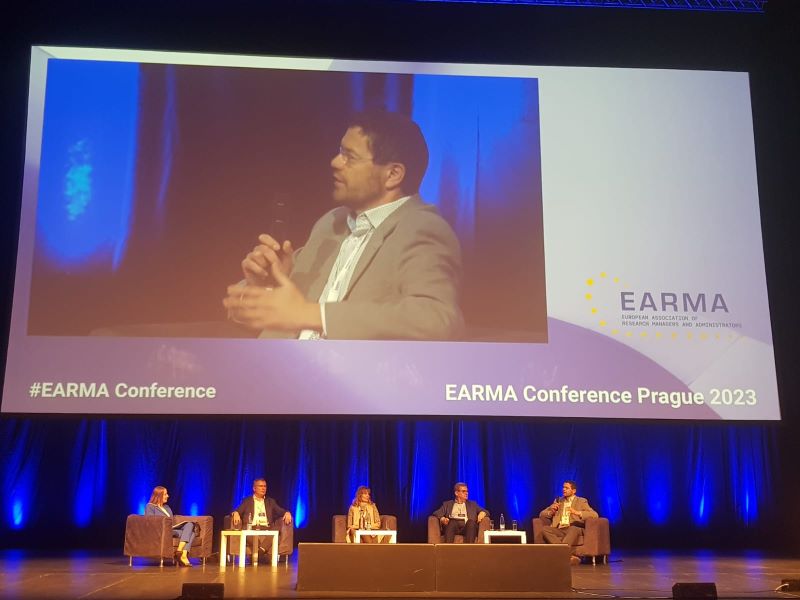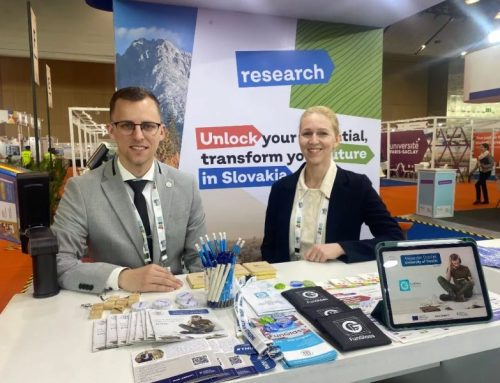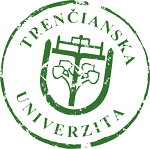FunGlass participation at EARMA Conference
During 24-26 April, 2023 professor Dušan Galusek with our European Projects Team represented by Monika Šandrejová, Andrea Chrastinová and Michaela Matejová, joined the Conference of the European Association of Research Managers and Administrators (EARMA) which took place in Prague´s Congress Centre. EARMA represents the community of research managers and administrators (RMA) of the European institutions from the industry and academia sector.
The theme of the conference was focused on Widening and Deepening of the RMA profession.
Conference covered the presentations, discussions and interactive workshops targeted to the networking, sharing the best practice and relevant information in project management and administration support.
Prof. Galusek was invited to be a guest of the panel discussion “Widening countries – where are the real gaps?” chaired by Dr. Zygmund Krasinski ( President of the Polish Chamber of Commerce for High Technology and Strategic advisor to the Director of the National Center for Research and Development) and moderated by Katarzyna Walczyk (ex Widening NCP, NCP_WIDE.NET and NCP_WIDERA.NET Coordinator of Poland), Dr. Zlatuse Novotna – Head of Strategic Partnerships and International Relations of CEITEC – Masaryk University in Brno and Dr. Stefan Weiers from European Commission (DG Research & Innovation, Head of Sector – Widening, ERA & Research Infrastructure Programming).
Abstract of the discussion:
Widening countries are lagging behind as to many indicators related to R&I and participation in Framework Programmes. Looking through financial perspectives one can see rather slow improvements in their performance. As we all know, the most of the EU-13 countries, representing over 80% of the total EU-13 population, including Bulgaria, Croatia, Hungary, Latvia, Poland, Romania and Slovakia, are so called “Emerging Innovators” placed at the bottom of the European Innovation Scoreboard. In our opinion, the low innovativeness of these countries results mainly from their development path in the past and the ongoing transformation of national innovation systems, which takes much longer than market changes in the scale of the entire economy. It should be emphasized that in EU-13 there are very skillful people and, in particular, we observe that a new generation of researchers and innovators is growing, the innovators with a great education and enormous potential, which is often wasted and “not working” for these countries, but also for the entire European Union. Only because of the existing barriers they often cannot break through with ideas and successfully finalize the process of implementing innovations. Various studies indicated several barriers such as low quality of proposals or lack of measures for effective opening the existing networks and matchmaking possibilities. Yet, the analysis do not focus enough over the capacities of R&I ecosystems i.e.: number of qualified Research Managers or favorable frames, including stability of R&I institutions in the regions. Those have a crucial influence on the decision to apply for funding under Framework Programmes. On the other hand they may be related as well to lack of trust on the side of advanced partners towards Widening applicants. The session in form of panel discussion will concentrate on the aspects related to:
a) promotion of Research Managers position in Widening countries,
b) influence of instability of R&I ecosystems on participation rates,
c) how to build trust as a base for future projects.
